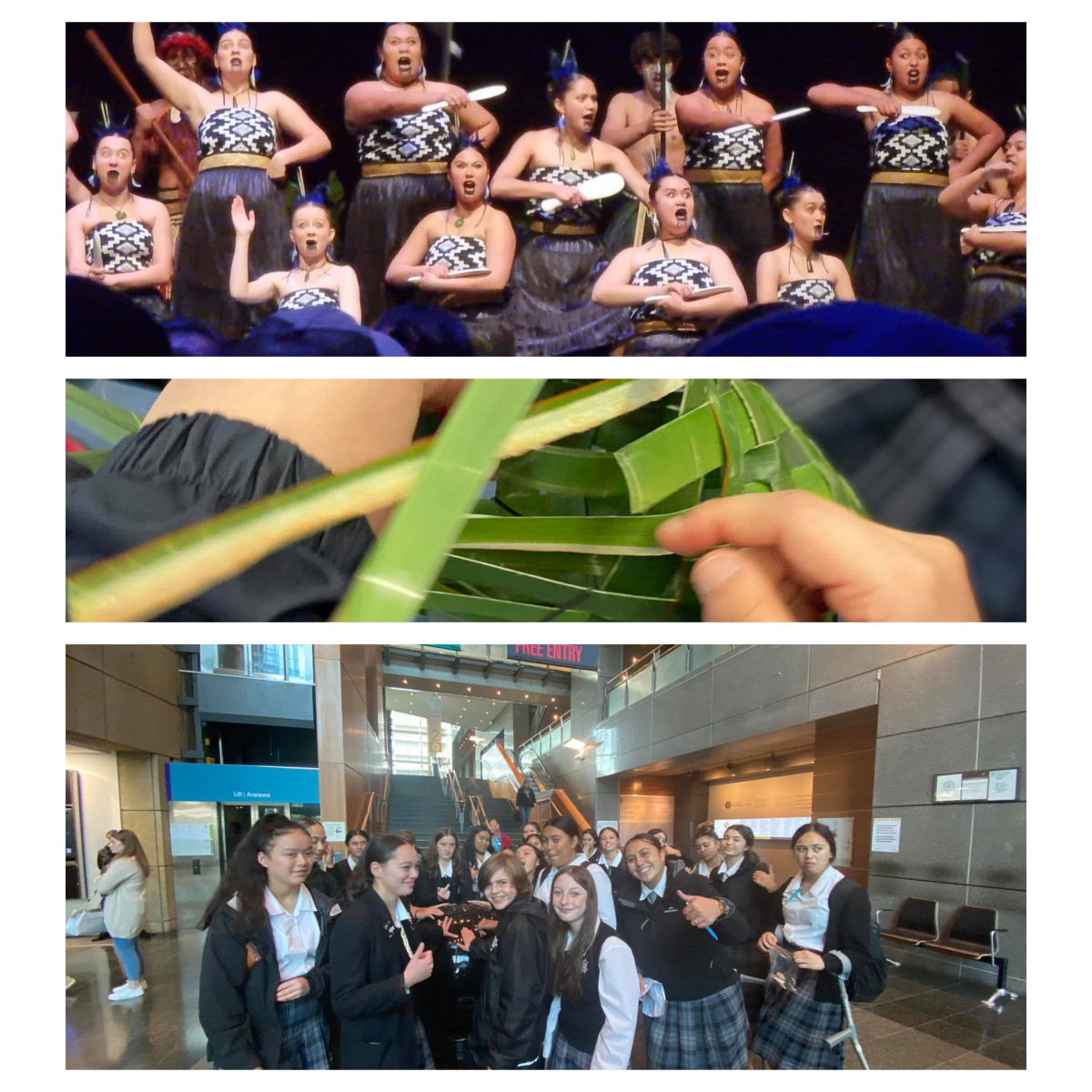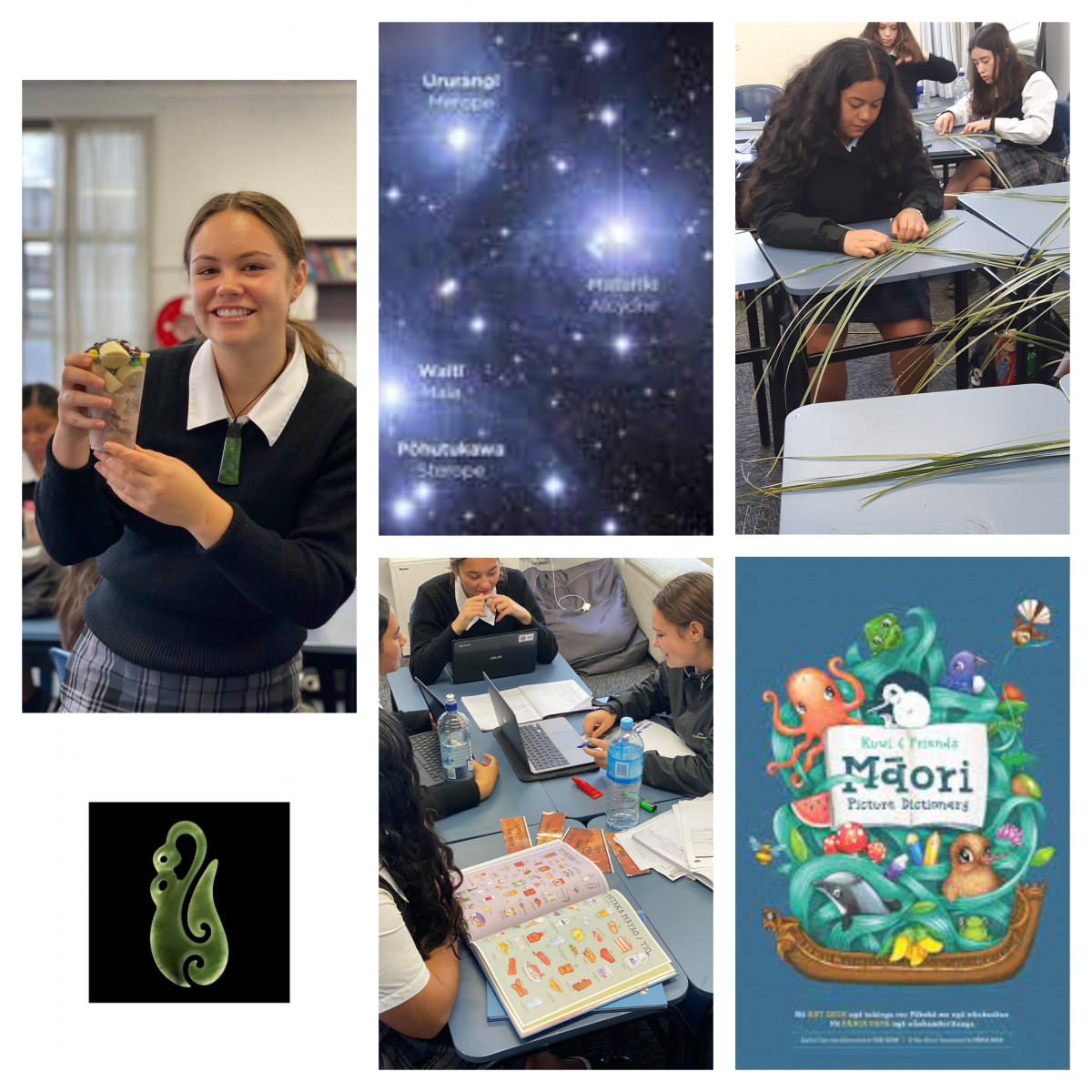Year 10 Te Reo Māori
Subject Description
Teacher in Charge: Mr S. Taimalelagi.

In Year 10, the focus continues on listening & speaking te reo Māori, with increased exposure to reading, writing & presenting. At the end of the course, ākonga should be able to talk about routines, habits, travel, feelings, past events, and express opinions. The Education Outside the Classroom (EOTC) aspect of Te Reo Māori, as it relates to kaupapa Māori, continues as practicable.
The course is based on the Whāinga Paetae (achievement objectives) at Levels 3 - 5 of the NZ Curriculum. If you'd like to know more about these, go to 'Useful Links' at the bottom of this page.

Subject Overview
Term 1
Unit 1: Haerenga ki te Tāone - Going to Town
- Going to town
- The destination - past/present/future
- The purpose of your trip
- Modes of transport
Unit 2: Mahi Hākinakina - Sports and Leisure Activities
- Sports and Activities
- Past/present/future actions
Term 2
- Negating present tense actions
- Giving commands
Unit 3: Ngā Mahi a te Rā - Daily Routines
- Parts of the body
- Occupations
- Past tense actions
- Negating past tense actions
- Past tense 'actor emphatic'
Term 3
Unit 4: Tōku Akoranga - My Class
- Language for the classroom
- Attendance
- Past location
- Using 'kua' to say has/have
- Negating 'kua' sentences
- Statives
Unit 5: Te Hararei - Planning a Holiday
- Future actions
- Proposed route and mode of transport
Term 4
- Negating future tense actions
- Asking availability and permission
- Future 'actor emphatic'
Unit 6: Manaakitanga - Hospitality
- Quantity
- The cost
- Offering food
- Asking and saying who something is for
- The 'A' and 'O' category
Recommended Prior Learning
Open entry
Contributions and Equipment/Stationery
*Equipment & Stationery*
- BYOD with headphones (for listening exercises)
- 1 x 1B5, 1 x 20 page clearfile, gluestick, scissors, felt-pens
- 'Māori 2 Go' Book 2
Pathway
According to Careers NZ, "It's helpful to have knowledge of te reo Māori for jobs such as policy analyst, reporter, editor, librarian or CEO. It’s important to be able to pronounce Māori names and places correctly if you’re a news reader, or television or radio presenter. For jobs such as Kaiwhakaako Māori (Māori medium school teacher), interpreter or translator, you must be fluent in te reo Māori." In terms of small business, "The Ministry for Business, Innovation and Employment estimates the Māori economy to be worth $40-$50 billion in 2018, and that figure is growing. Most iwi businesses are in agriculture, forestry or fisheries, but you could also find your dream job in the related legal, marketing, management and science fields, or in one of the many small-to-medium Māori enterprises."
Visit this link https://www.canterbury.ac.nz/media/documents/careers-internships-and-employment/brochures/Careers_Kit_TereoMaori.pdf to see an extensive list of careers where being a reo Māori speaker is an advantage.
Useful Links
Disclaimer
All subject selections are provisional only and are subject to:
- meeting any course entry requirements
- minimum class sizes
- the availability of teaching staff
and the final decision is at the discretion of the Head of Learning Area for that subject.
 St Mary’s College (Wellington)
St Mary’s College (Wellington)